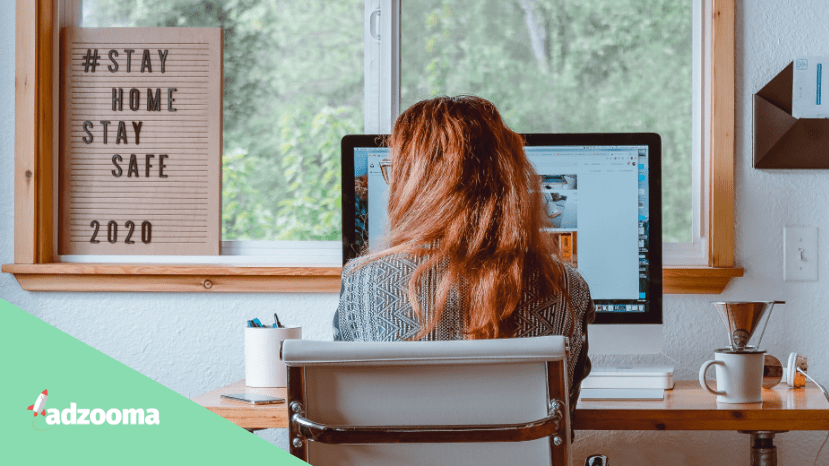[ad_1]
Contributor: Paul Ansorge – The Reach Approach |
Paul Ansorge – The Reach Approach

COVID-19 has forced businesses across the globe to work remotely and new data suggests that this could be the new normal, killing the traditional office as we know it.
In the UK, more than 60% of the adult population is working from home during the Coronavirus lockdown. But now everyone has had a taste of working from home, the future workplace is likely to never look the same again.
Adzooma surveyed 447 workers* and interviewed dozens of businesses about their current plans and opinions. The data identified that 93.3% of people are able to perform their job as normal, from the comfort of their own home.
Over half (60%) of people surveyed said they would like to work from home if they had the choice. What’s more, 52.6% said they don’t want to return back to a normal office after COVID-19.
For the majority of people, working at home is an enjoyable experience, with 83.5% of respondents admitting that they enjoy working at home, even during a global pandemic.
When asked the reason why working from home has been enjoyable, 39.9% said the flexibility it brings, whilst 37.6% said the lack of commuting, followed by 13.4% admitting they liked having the space to concentrate.
Other responses included not having to keep up a ‘work persona’, wearing comfortable clothes, fewer interruptions and having “a workspace that is perfectly set up for my needs”.
According to the data, 67.6% of respondents said they are more productive when working at home, potentially due to fewer distractions. However, 63.6% of respondents admitted that they miss aspects of working in an office.
When asked what they missed most about the office, 43.1% of people said socialising, with other answers including face-to-face meetings (15.7%), communication with others (14.8%) and structure (10%).
One of the most popular responses was a call to continue working from home for the majority of the week, coming into the office for two days to meet others, socialise and brainstorm new ideas.
The general response from most tech companies seems to be ‘wait and see’. Twitter on the other hand, took a different approach by boldly announcing employees will never have to go back to the office if they don’t want to.
The survey also took into account how staying at home may affect people’s mental health.
To get a deeper understanding of this subject, Adzooma interviewed psychotherapist Paul Ansorge from The Reach Approach for his view on the effects of working at home.
“There are a number of obvious benefits – not having the stress of a commute, being able to have more relaxing sleep as there is less time pressure, and not having the stress of being observed all day and feel like you have to put on a show, especially if you’re struggling.
“However, the aforementioned lack of social contact would be the key negative – as well as a kind of “four-walls” syndrome of a lack of variety of environment.
“If you do work from home, compensating for both these things with your non-work time is pretty crucial!”
[ad_2]
Source link





